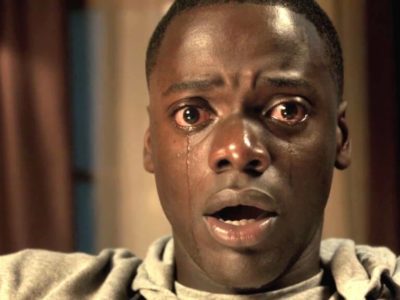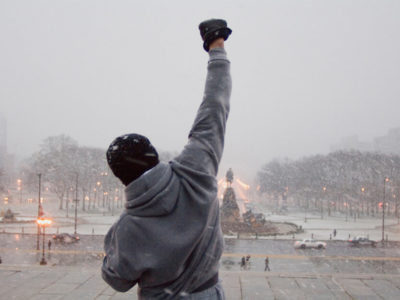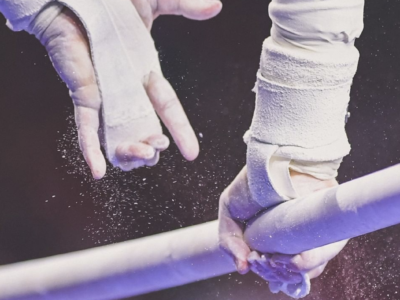Get Out shed a bright light on white liberals and racism in our country. The film symbolically and literally illustrates the prejudice, discrimination and suppression of African Americans in the United States. The movie goes a different route by depicting the racism through a white family and friends that consider themselves liberals.
In the dinner scene, the father emphasizes his support and love for Obama to showcase his social awareness and progressiveness. However, this supposed awareness and liberality, showcases much more about present racism than one would initially think. Jordan Peele’s choice to portray such an animalistic racism come from a white family that considers themselves progressive, liberal and non-blatantly racist, becomes an extremely illustrative microcosm for the macrocosm of our casually racist society.
So what is racism?
The sociological and technical definition of the word mean both prejudice and discrimination against a person (or a group of people) based on their race or ethnicity. But racism is much more than the technical definition, as the film Get Out shows. It is repressive and hateful. It is silencing. And it is wrong.
However, in the film, Peele makes the act of racism even worse not simply due to the horrific plot twist, but by making it benevolent. Obviously, not every white person in America is racist, but every white person in America has privilege. By choosing to depict this racism, not only in present day, but from a family that does not seem blatantly racist (if anything the opposite), Peele illustrates the fact that racist behavior doesn’t need to be obvious to exist.
What is liberal?
The Oxford English Dictionary defines liberal as: “willing to respect or accept behavior or opinions different from one’s own; open to new ideas” and “favorable to or respectful of individual rights and freedoms.” So being a white liberal would includes accepting nontraditional views and respecting of individual rights, including equality regardless of race.
A person can’t simply “be liberal” without being socially aware. The two come hand in hand. How can one respect new ideas and individual rights if they remain ignorant to those ideas and rights? Racism is obviously not a new idea. It is an act that can shape in many different and new ways. You cannot be racist and be a liberal, a huge point that Get Out highlights.
Simply categorizing yourself as a liberal and socially progressive person does not make you non-racist. Just because you say “Black Lives Matter” doesn’t mean they actually do to you. Privilege comes with pre-existing notions of how the world works for you versus others. Just like that is something you have to constantly work against, you also have to do the work behind the label. Casually racist liberals can’t exist.
Racism Beyond Get Out
Being liberal is a huge aspect of the film and of our society today. New York City is a historically blue state, making New York University a fairly liberal college. However, being liberal doesn’t mean being aware, something Ashleigh Taylor, NYU Junior, knows a lot about.
Taylor, an African American student with her own YouTube channel, often discusses racism and similar topics in her videos, especially within the context of attending a predominantly white university. Her video reaction to and discussion about Get Out echoed many of these points. “To me, being a black woman in the United States, it was so relevant. And also being a student because of all of the microaggressions that I and a lot of my black colleagues face on a daily basis, whether that is in a school setting or in a workplace,” Taylor said.
While speaking to her, she also explained experiences that she herself has had with white liberals, friends and strangers—ones that consider themselves socially aware. “The easiest microaggression is like ‘Oh, can I touch your hair?’ And I’m like ‘Why do you need to touch my hair? It’s lowkey like your hair. It’s just hair,’” Taylor said. “A lot of my experiences haven’t been blatant racism, but nothing is blatant racism anymore. Because the laws have supposedly changed. Nothing is blatant racism because we are supposedly in a ‘post racial society.’” A statement which is not the case, but an aspect that Peele touched on constantly in his film.
Are we really in a post-racial society?
Many people do seem to consider present society a post-racial one, due to the negative connotation that racism now has. But just because we view the past as horrific or terrible does not mean we’ve socially progressed past it.
Michelle Driscoll, partly Hispanic NYU Alum, experiences certain microaggressions of this casual racism, too. Driscoll, not having a stereotypical Latina external appearance, is often mistaken as fully white. But when others learn that she is not, she can tell the difference in behavior. “An old classmate also once told me that I ‘wasn’t really, though’ even after I explained to her that I was, in fact, really Dominican. I also know a guy who discovered I was Latin [a few] years ago and continues to call me spicy, chica, etc..”
Latina and Hispanic have become a large part of the race narrative in this country, especially for someone who doesn’t fall under the expected appearance of one. Casual racism becomes much more blatant.
To Driscoll, justifying herself to people because of her appearance is upsetting. As it should be. “What they fail to realize is that, not only Dominican women but just Latin women in general, come in all shapes and sizes. Just because I do not match the media’s portrayal of Latin women does not make me less than,” said Driscoll.
No, we’re not. Look at the media.
Perpetuating the media’s portrayal of minorities does not make you liberal. Assumptions about or questioning someone’s ethnicity is a major microaggression. Many people don’t consciously realize they participate in this. You’re not exempt from this just because you consider yourself progressive, something Peele shows us.
“The thing is a lot of white people or non POCS don’t think that they contribute to racism because supposedly we are in a post-racial world and racism is a thing of the past. But I honestly think that was such an important aspect of the film,” Taylor said. By claiming the we are a post-racial society, one claims that we are post-race, which is definitely not the case. Minorities everywhere are continually disadvantaged and stereotyped against white privilege—something many white people would never want to call a thing of the past.
If white privilege still exists, then so does color. So does race. And Peele showcased how that can be hidden underneath social progressive views. Views that don’t make white liberals any less a part of the problem. To echo Taylor, a difference exists between actually woke and #woke.



















